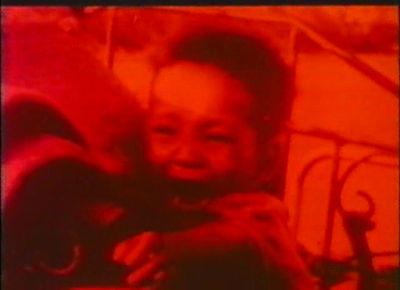I gabbiani
volano basso
D: Giorgio Cristallini. W: Giorgio
Cristallini, Odoardo Fiory. Ph: Gino Santini. M: Carlo and Paola Cristallini,
Roberto Pregadio. St: Maurizio Merli (‘Jeff Jacobson’/‘Albert Morgan’),
Nathalie Delon (Isabelle Michereau), Mel Ferrer (Roberto Micheli), Dagmar
Lassander (Amparo), Andrew Esterhazy (Calvi)
“The world is a sewer, and most of the people are rats”
“The world is a sewer, and most of the people are rats”
Seagulls weren’t the only things flying low in 1978. Maurizio Merli’s box-office popularity was also losing altitude; this mediocre offering failed to reverse the trend, despite, or because of, the unconventional role it afforded him. The script folds in elements from film noir and New American Cinema, with its alienated antihero, but neither the dialogue nor Cristallini’s lacklustre direction have sufficient spark to give the story wings.
Merli plays a Vietnam veteran who arrives at Civitavecchia incognito, looking like the kind of ruffian he had spent much of his screen career assaulting – shaggy-haired and rumpled, jeans and army-surplus jacket the hallmarks of a Bickle/Rambo-style misfit. His appearance is misleading, however (and alters, in any case, after 20 minutes – farewell to the famous Merli moustache). The script forces the point about him being an outsider, but he is no walking time bomb. His first act is to kill a man – yet this is a contract job forced on him by Micheli, a smoothly ruthless businessman, in exchange for a new identity and a fake passport. Micheli knows Merli’s secret – he is a deserter, fleeing both the authorities and a traumatic past. (Red-tinted stills of crying babies and mangled corpses comprise the obligatory ‘flashback’. The effect is as tacky as it sounds.)
There is a well-executed scene at the airport in which Merli panics, convinced that the officials routinely scrutinising his passport are wise to the ruse. Paranoia drips from his pores as he glances furtively at the desk from behind mirrored shades. After this, he goes on the run. His only ‘friend’, Micheli, is killed by hitmen working for Calvi, his business partner, who frames Merli for the deed. With a new identity as ‘Albert Morgan’, courtesy of Micheli’s underworld contacts – Dagmar Lassander’s hard-faced nightclub owner, and a counterfeiter known as “the smoker” – ‘Morgan’ strikes up an unlikely romance with Isabelle, a French boutique owner, and tries to evade Calvi’s hired killers.
The
script paints the lovers as kindred spirits – “We’re alone… alone inside” – and
has them engage in silly dialogues and morbid musings laden with strained
similes: Isabelle’s childhood longing for overpriced crêpes
is evoked to symbolise a lifelong, frustrated yearning for fulfilment, as are
the seagulls they watch swooping for food; ‘Morgan’s’ entrapment is likened to
that of the insects he used to torment as a boy. It is noir by way of poetic
realism, at least in theory – Merli is no Gabin, and Cristallini certainly no
Carné.
The director made just nine films in a stuttering career that spanned 40 years – beginning in 1948, halting in 1955 and resuming only at the beginning of the Seventies. At that point he made two saggy Italian westerns – benchmarks for his work here, unfortunately, which displays nary a flicker of imagination. There is a surplus of car footage, as with many Italian crime films (the De Angelis’ brothers song Drivin’ all Around, composed for Street Law in 1974, could serve as a catch-all theme tune). Under Cristallini’s direction, the vehicles are like the film in general, rarely reaching high gear. The opening scenes, which trace Merli’s journey to his target, pootle along for eight minutes, set to a grating, funk-lite score. There are more conversations in cars than there are chases, which ought to incur some kind of penalty, given the genre in question. The improbable romance almost stalls proceedings completely, notwithstanding Delon’s disarming performance, until a finale in which Merli’s fatalistic perspective is substantiated by events.
The emphasis on character and relationships rather than tyre-squealing action would be laudable were it not mishandled. Otherwise, the cynicism about corruption in high places (the precise nature of Micheli’s company is never broached, and the point is moot) and the air of pessimism are very much business as usual for Italian crime cinema, capped by a final shot that was perhaps a conscious tribute to Merli’s breakthrough, Violent Rome.
The
actor’s willingness to modify his persona, a process begun in the western A Man Called Blade, is similarly
commendable, although home audiences didn’t exactly flock to Seagulls. It failed to crack the top 100
at the Italian box office in 1978-79 (three of his poliziotteschi did make the grade that season, albeit only just). Evidently,
his dwindling number of fans preferred Merli as a teeth-gnashing enforcer, not a
noir-esque loser.
Kevin Grant
Kevin Grant





No comments:
Post a Comment